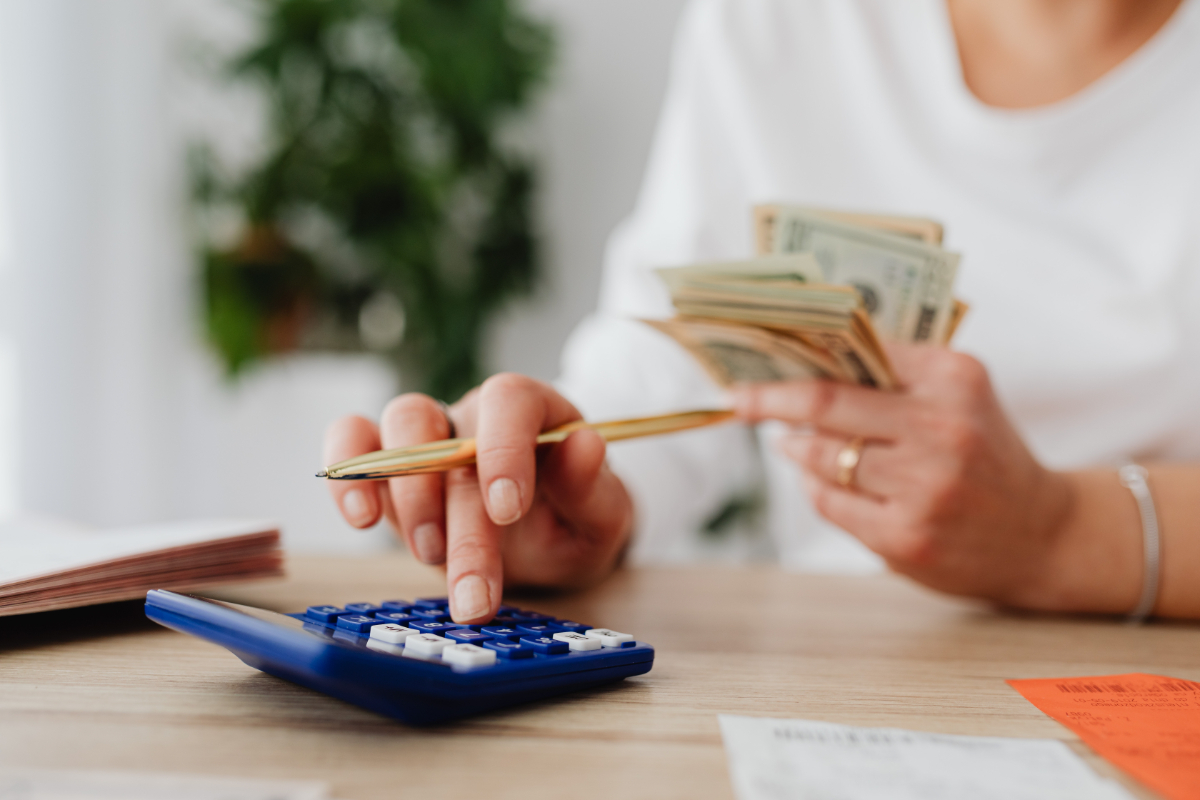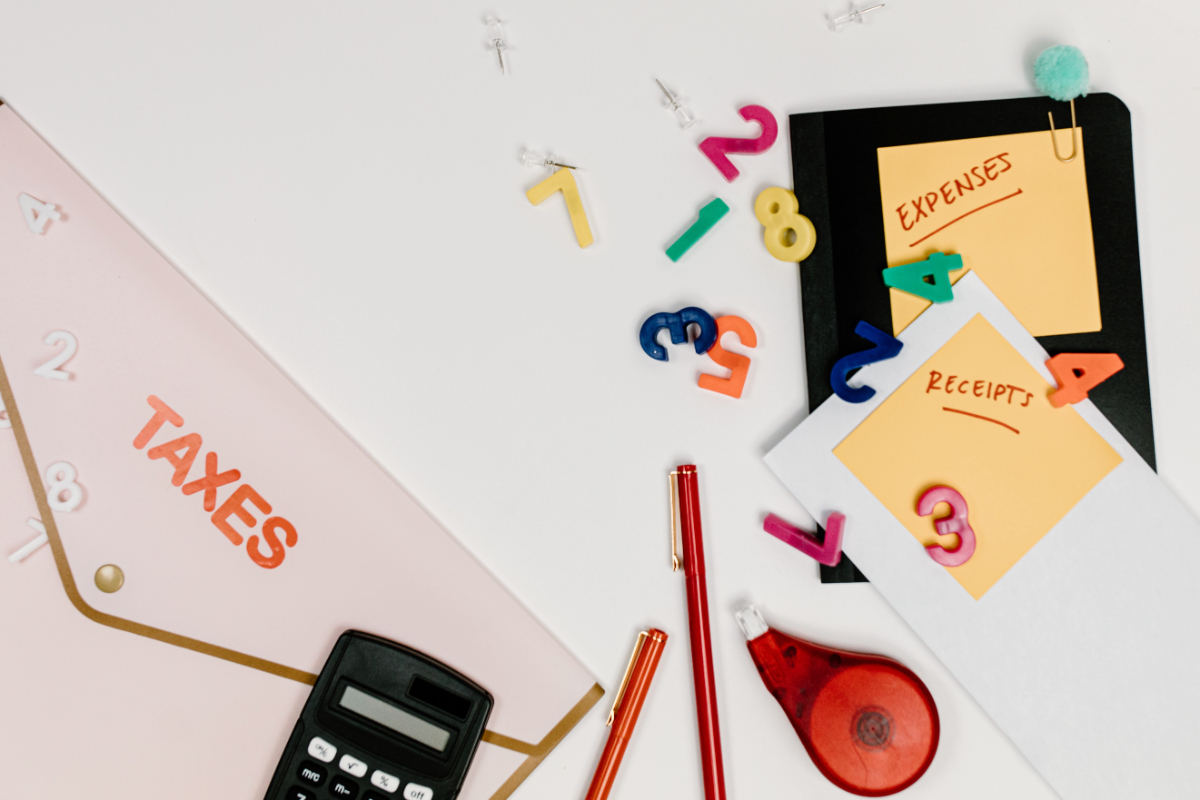Stop Impulse Purchases: A Guide to Mindful Spending
There are some affiliate links below, but they are all products I highly recommend. For more info, view my disclosure here.
Do you ever find yourself standing in a store, trying to talk yourself out of buying something that you know you don’t need? It’s a common problem for most of us. Impulse purchases can add up quickly and leave us with buyers’ remorse. But what if there was a way to stop impulse purchases in their tracks?
The good news is that there is! With just a few simple steps, it’s possible to delay an impulse purchase so that we can think more rationally about our decisions before pulling out the wallet. In this article, we’ll explore how to stop impulse purchases in their tracks by delaying them. We’ll look at the benefits of slowing down your purchasing decisions, as well as strategies and tips for delaying those impulsive buys.
At the end of the day, it’s all about taking control over our spending habits and making sure we’re getting our money’s worth on every purchase. So let’s get started on how to stop impulse purchases in their tracks by delaying them!
Understand What An Impulse Purchase Is
The first step to stopping impulse purchases in their tracks is understanding what an impulse purchase is. Impulse purchases are those that you make on the spur of the moment, without much thought or consideration. They are often made impulsively, because something catches your eye, or it’s something you’ve been wanting for a while. Impulse purchases can be anything from a new pair of shoes to a big-ticket item like a car or vacation package.
It’s important to recognize the triggers that lead to making impulse purchases so that you can avoid them in the future. Common triggers include seeing something on sale, being offered a deal or promotion, getting caught up in the moment, and feeling pressured by salespeople or friends. It’s also helpful to recognize when you’re likely to be tempted into making an impulse purchase – for example, when shopping online or browsing through catalogs late at night when you’re already tired.
Delaying impulse purchases is key to managing them more effectively. This means taking time to think about whether the item is really worth purchasing and if it fits into your budget and goals. Taking a step back and waiting 24 hours before buying something can help you make better decisions about your money and avoid spending unnecessarily. Additionally, by setting limits for yourself – such as only spending x amount of dollars per month – you can control how much money goes towards unnecessary items and maintain better financial health overall.
Making smart decisions with our money isn’t always easy but putting strategies in place like delaying impulse purchases can help us stay on track with our finances.
Analyze Your Spending Habits
Analyzing your spending habits is an important step in stopping impulse purchases in their tracks. Understanding where and why you are spending money is vital to identify any potential areas of weakness when it comes to impulse buying. Taking the time to evaluate your spending activity can help you recognize patterns and behaviors that may lead to impulsive decisions, as well as uncover which items have the potential to become impulse buys.
With this knowledge, you can then make an effort to focus on more conscious decision-making when it comes to purchases. This means taking into account what you actually need versus what you may want, or considering whether a product fits into your budget or not. Additionally, this allows for better control over how often you are making purchases and whether or not those purchases are necessary for your day-to-day life.
In addition to analyzing your own purchasing habits, there are other ways to avoid impulse buying. Setting a budget for yourself and sticking to it is essential, as is limiting access to credit cards and other forms of payment that may be too easy for you to use impulsively. Taking a few moments before each purchase can also be beneficial; this gives you time think about what you’re doing and consider if the item is something that will truly bring value or if it’s just something you’re wanting in the moment without much thought put into it.
By evaluating our spending habits and being mindful of our decisions, we can take steps towards avoiding unnecessary purchases that have the potential to add up quickly and cause financial strain.
Set A Budget And Stick To It
The third step to help stop impulse purchases in their tracks is to set a budget and stick to it. Creating a budget gives you an outline of what you can afford and, more importantly, what you can’t. This helps to create more conscious spending decisions that are based on your financial reality instead of a spur-of-the-moment whim.
When setting a budget, consider both fixed costs like rent and utilities as well as variable costs like groceries or entertainment. Once the total amount for these expenses has been determined, subtract this from your total income; the remainder is how much money you can spend on discretionary items like clothes or vacations. It’s important to remember that this number will likely be lower than what you’d like, but it’s essential for developing better financial habits in the long run.
By sticking to this budget each month, it’ll become easier to resist impulse purchases as they come up. You’ll then have to pause and decide if spending the money fits into your overall financial plan or not. If not, it’s best to walk away and save up for something else instead – even if it doesn’t feel as satisfying in the moment. Taking control of your finances will pay off in the long run when impulse buying isn’t part of your everyday life.
Creating a budget isn’t easy but with some time and effort, it is possible to develop better spending habits that don’t involve making impulse purchases. Before shopping, take a few moments to review your budget and make sure there’s enough room for what you want without sacrificing other essentials. With practice, it may become second nature and help put an end to unnecessary purchases once and for all!
Unsubscribe From Shopping Emails
One way to stop impulse purchases in their tracks is to unsubscribe from shopping emails. When we subscribe to a store’s email list, it can be overwhelming. Inboxes fill with deals and offers that are hard to resist. Without them, the temptation won’t be so clear cut.
It’s easy to unsubscribe from emails and takes just a few minutes. All you have to do is look for an ‘unsubscribe’ link at the bottom of the email or click on the settings icon in your account. Additionally, if you want a break from any online shopping sites, you can delete your accounts or deactivate them temporarily.
By keeping emails off our inboxes, we remove any potential triggers that could prompt an impulse purchase. We don’t need to be constantly reminded of what we’re missing out on or how much money we could be saving on a new item. Instead, this step allows us to focus on what we already have and how best to use it without unnecessary distractions.
Taking this simple yet effective step can help us save time, money and energy on things that may not even add value in our lives. Unsubscribing from shopping emails is one way to put an end to impulse purchases and make sure they don’t derail our budgets and goals.
Limit Shopping And Online Activity
Making purchases impulsively can be hard to avoid, especially when there are plenty of shopping opportunities available. One way to combat this is by limiting your shopping and online activities. Whether you’re browsing a store website or scrolling through social media posts, it’s important to be aware of what might tempt you into buying something.
One way to do this is by setting a time limit. For example, if you only allow yourself 15 minutes on an online shopping site at once, it can help stop any impulse purchases in their tracks. Another tip is to avoid clicking on ads that appear while browsing the web. This could lead you down an unplanned rabbit hole of spending money!
If possible, try setting up an account with fewer payment methods – like a cash-only option – so that if you do make impulse purchases the amount will be limited. In addition, if you’re shopping in person and don’t want to splurge, leave your credit cards at home and only bring cash for what you need. All these techniques can help delay any impulsive decisions and keep your wallet safe from extra spending.
Leave Your Credit Card At Home
Shopping impulsively can be a difficult habit to break, but one way to help prevent it is by leaving your credit card at home. Without the availability of a credit card, you are less likely to buy something on a whim. Plus, if you don’t have the card with you, you’ll have to delay any purchase because you won’t be able to make it right away. This delay will give you time to think about whether or not the item is truly necessary and if it fits into your budget.
Another benefit of leaving your card behind is that it forces you to plan ahead and think more consciously about all of your purchases. This can help encourage better money management and spending habits in the long run. It also helps remove the temptation of buying things that aren’t really needed in the moment just because they’re available and convenient. Instead, this strategy encourages thoughtful shopping decisions that are more in line with your financial goals.
By having no access to a credit card when shopping, it allows for greater control over impulse purchases as well as more mindful spending overall. You’ll be able to take a step back from any potential purchases and ask yourself if this item is something that’s actually worth buying in the end or if it’s simply an impulse decision that should be avoided altogether. This can help ensure that all of your purchases are high quality items that bring real value into your life instead of simply wasting money on needless items.
Research Products Before You Buy
Making an impulse purchase can be tempting and often lead to buyer’s remorse. To avoid making a purchase you later regret, research the product beforehand. This will help you make an informed decision and stop impulse purchases in their tracks.
Gathering information about a product or service before you buy takes time, but it can be well worth the effort. Start by reading customer reviews and ratings online to get an idea of what others think about it. You can also check out forums and discussion groups dedicated to the item you are interested in. This is usually where people share their experiences with the product or service, both good and bad.
When researching products, also pay attention to how much they cost compared to other similar items on the market. Shopping around can save you money and help you get more bang for your buck. Additionally, if there are any discounts or special offers available, be sure to take advantage of them when making your purchase.
By taking the time to do your homework before buying something, you can make a smarter decision that won’t leave you feeling regretful later on. Taking these steps will help keep impulse purchases at bay and ensure that whatever you buy is something that is truly worth your hard-earned money.
Make A Shopping List Ahead Of Time
To further help stop impulse purchases in their tracks, creating a shopping list ahead of time is key. Planning ahead and writing down which items you need can give you an idea of how much the purchase will cost and make sure that you aren’t buying anything unnecessary. It also gives you an opportunity to do research on the items that are most important for you to buy. You can look for discounts or sales, compare products, and decide if the item is worth the price or if it’s something that can wait for another day.
Having a shopping list will also save you time during your trip to the store. You won’t have to scan shelves trying to remember what it was that you needed in the first place—you’ll already know! Knowing exactly what needs to be purchased can help get in and out of stores quickly, giving less time for unplanned purchases to pop up. Plus, having a plan of attack when entering a store makes it easier to stick to your intentions and leave without buying something extra.
Making a shopping list ahead of time is an effective way to avoid impulse purchases while still getting everything on your wishlist. Taking a few minutes before going out can help keep more money in your pocket by avoiding any unnecessary spending along the way. So next time you’re looking for something specific don’t forget: write it down!
Wait A Few Days Before Making A Purchase
Making a shopping list ahead of time is one way to help stop impulse purchases, but waiting a few days before making a purchase is another. This simple step can be even more effective in putting the brakes on unplanned and often regretted purchases. Taking some time to think it over gives you the opportunity to consider whether you really need the item, or if it’s something you’ll regret buying later.
By giving yourself a day or two before purchasing, you can double check that what you’re about to buy isn’t something you already own, or something that’s available at a better price elsewhere. You may also discover that what seemed like a great idea when browsing online doesn’t seem quite so appealing after sleeping on it.
Delaying your purchase until you’re confident in your decision can help save money and prevent buyer’s remorse down the line. If the item still seems like a good idea after taking some time to consider it, by all means go for it! But if not, then know that stopping yourself from acting impulsively was likely the best choice for your wallet – and your peace of mind.
Get Help If You Need It
If you find that delaying your impulse purchases isn’t enough to stop them, it might be time to get help. Seeking out the advice of a trusted friend or family member can be an effective way to keep you from making unnecessary purchases. They can provide invaluable insight that can help you stay on track and make sure that any purchase decisions made are thought-out and reasonable.
Talking to someone who knows you well can also help when it comes to finding ways to avoid temptation in the future. It’s important to note that if your spending habits feel out of control, there are also more formal options of help available. Professional resources like financial advisors and counselors can provide assistance for those struggling with compulsive spending.
No matter what kind of help you seek, talking about your financial issues is often the first step in overcoming them. Having someone else’s input can provide clarity and perspective on how best to manage your money, allowing you to make good decisions going forward. There’s no need to face this issue alone – take the opportunity to get the support needed so that you can confidently start putting an end to impulse purchases.
Frequently Asked Questions About Stopping Impulse Purchases
What Is The Best Way To Track My Spending Habits?
One of the best strategies to stop impulse purchases in their tracks is by delaying them. To do this effectively, it’s important to have an understanding of your spending habits. Tracking spending can help you identify and address any areas where you have difficulty saying no to those impulses.
Tracking spending isn’t difficult; there are a plethora of tools, both digital and analog, that can help you take control of your finances. Many banks offer apps or other online services that allow you to see where your money is going, so you can adjust your budget accordingly. You could also opt for a paper-and-pencil approach if that works better for you – writing down all your expenses in a journal or ledger will give you an accurate picture of what’s happening with your money.
Another great way to track spending is through budgeting software like Mint or YNAB (You Need A Budget). These programs make it easy to keep tabs on all your purchases, as well as analyze income versus expenses over time. They’ll even provide helpful tips on how to stay within budget and spend more wisely – which will ultimately help curb impulse spending.
Whatever tracking method you choose, the most important thing is that it fits into your lifestyle and makes sense for you. That way, it won’t just be another chore on top of everything else – instead, it’ll be an integral part of keeping yourself accountable when it comes to making smart financial decisions and avoiding impulsive purchases.
How Do I Know If I’m Shopping Too Much And Need To Limit My Activity?
Figuring out if you’re shopping too much can be tricky. It’s important to keep an eye on your spending habits, as impulse purchases can add up quickly and have major consequences for your budget. One way to do so is to track your spending over a period of time and identify patterns or trends.
To get started, consider setting up a budget that outlines how much money you plan to spend in each category per month. You might also want to take an honest look at where you’ve been spending the most and ask yourself if it’s something you really need or just want. For example, if you find yourself frequently buying clothes or other items impulsively, it may be worthwhile to set some limits for yourself.
Finally, it can also be helpful to check in with yourself after making purchases by asking questions like “Do I actually need this?” or “Will I regret this purchase later?”. Taking a few moments to pause before buying something can help stop impulse purchases in their tracks and allow more thoughtful decision-making when it comes to your finances.
What Are The Benefits Of Waiting A Few Days Before Making A Purchase?
Shopping can be an enjoyable activity and a great way to treat yourself. But, it’s important to make sure you’re not over-spending or buying items you don’t need. One way to help limit impulse purchases is to wait a few days before making any decisions. Doing this gives you time to consider whether or not the item is really necessary, if there’s a cheaper option, and if you can afford it.
Waiting before making a purchase can be beneficial in more ways than one. It gives you more time to think things through instead of rushing into an unnecessary splurge. If the item is still appealing after waiting, then chances are it’s something you’ll get a lot of use out of and won’t regret later on. Additionally, taking some time to research other options could lead to finding a better deal or discovering the exact same product at a lower price point.
Stopping impulse purchases in their tracks by delaying them may seem like an inconvenience at first glance, but it can actually save you money and stress in the long run. Putting aside extra time for researching products also allows for more informed decision-making that will help ensure your purchase is worthwhile. By using this tactic, you can make smarter shopping choices that won’t leave your wallet feeling empty afterwards.
How Can I Make Sure I Don’t Buy Something I Don’t Need?
First of all, it’s important to recognize that impulse purchases can be a real problem. They can lead to spending money on items we don’t need, or worse, regretting the purchase after it has been made. To avoid this, taking some time to reflect before buying something is essential.
When it comes to avoiding an impulse purchase, there are a few things we can do. Firstly, ask ourselves if the item is something we really need or want. We should consider what our budget is and whether buying this item would fit into it. Additionally, we should think about whether this item will bring us joy over the long-term or if it will just be a short-lived satisfaction.
One of the best ways to make sure we don’t buy something we don’t need is by delaying the purchase for a few days or even weeks. This gives us time to research the product and look for any better deals out there. Plus, it allows us to come back with a clear head and decide if this is something worth investing in or not. Taking this step can help us save money as well as give us peace of mind regarding our purchase decision.
Delaying purchases does have its benefits and being mindful about what we’re buying can help prevent regrets later on down the line. That’s why taking the extra time to think things through and wait until we’re sure of our decision can be so important when trying to avoid unnecessary purchases.
Is There Any Advice For Getting Help If I Can’t Control My Impulse Purchases?
When it comes to impulse purchases, it can be hard to know when enough is enough. Even if you know that buying something isn’t a good idea, sometimes the urge to make the purchase can be too great. So, if you’re struggling to control your impulse purchases, is there any advice for getting help?
The first thing to do is recognize that you need help. It’s important to acknowledge how strong the temptation of making an impulse purchase can be and how difficult it may be for you to stop yourself from doing so. Once you recognize this about yourself, it’ll be easier for you to take steps towards getting the help you need.
One way of getting assistance with controlling your impulses is by talking to someone who understands. This could include a therapist or a trusted friend or family member who can help talk through your feelings and provide support when needed. Additionally, many online forums are available where like-minded people share advice and tips on how they’ve been able to curb their own impulse purchasing behavior.
There are also practical steps you can take such as creating a budget and sticking to it and delaying your purchases for at least 24 hours before making them in order to give yourself time and space for reflection. By taking these measures, along with seeking out advice from those around you, it can help give you the confidence needed in overcoming your impulse buying habits.






